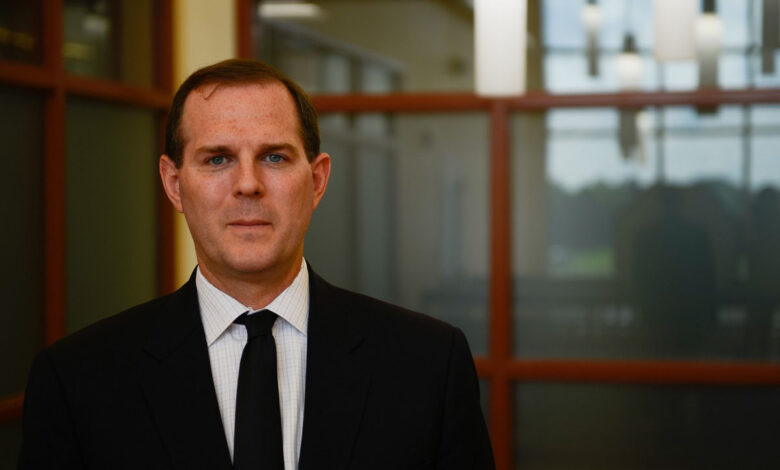
Professor named to governor’s education task force
By Jay Roberson
PRIOR to the COVID-19 pandemic, America was facing a shortage of teachers, and the pandemic has only increased that demand. New Jersey Gov. Phil Murphy has put together a task force to address the decrease in teacher candidates in New Jersey and Rider adjunct professor David Aderhold is one of 23 people appointed.
Aderhold’s 25 years in education and title as superintendent of the West Windsor-Plainsboro School District made him a candidate for the task force. He spoke about the reason for the decrease in educators prior to COVID-19 in an interview with The Rider News.
“If you go back about a dozen years, there were a series of changes in laws, pensions, certifications and there was a lot of negative discourse around teachers in general that was happening in New Jersey,” said Aderhold. “Since that time, we’ve seen the numbers decline for almost ten straight years.”
Professor of education Mark Pearcy explained he thinks less people become teachers due to a lack of respect for the profession.
“The way you fix the teacher shortage is drawing more people into the field and the way you do that is you pay them more, you allow them more autonomy in what they teach and how they teach. You give teachers the respect that you allegedly claim that we already give them,” Pearcy said.
Due to COVID-19, many educators retired early or quit due to high stress. Susan Dougherty, the chair of the department of education, also noted that many young people’s opinions on education were swayed by COVID-19.
“I think it’s partially because the pandemic years were hard years for students who might have typically gone on and thought about becoming a teacher, but their high school experience was tough, so they weren’t really thinking about spending their career in a school anymore,” Dougherty said.
Aderhold spoke about some of the changes he would like to see in education in order to bring in more teacher candidates. He included that some barriers had been addressed, such as the removal of the educative Teacher Performance Assessment (edTPA), which is a performance-based assessment for educators, but there are still ways to bring in more educators.
“I really think that we make it too hard for people to come in. We need to pay more when they’re working. And we need to make sure we’re supporting them when they’re in the profession,” Aderhold said.
Elementary education major Lindsay Sherman spoke about gun control and why she thinks her peers are not choosing education.
“A lot of the government doesn’t agree with gun control, which is ultimately what would help,” Sherman said. “I also think pay. People don’t want to be a teacher because you don’t get paid enough. There’s so much work that you have to do outside of school.”
One of the major reasons people do not choose teaching as a career is because of the low compensation. Aderhold hopes to address this issue while appointed to the task force.
“We really need to relook at the whole system of how we fund public education in New Jersey. It’s a really big conversation. But if we don’t do it, what’s at risk is are we going to have enough teachers to meet the needs of our students in New Jersey?” said Aderhold.
Though there are many barriers that prevent people from choosing education as a career, Dougherty emphasized that the positives outweigh the negative.
“You absolutely feel the impact you’re having on children, on young people in our society, in your role as an educator, and kids are amazing. … There are definitely great benefits and payoff to becoming a teacher,” Dougherty said.
The New Jersey task force hopes to find ways to better support current and future educators in order to fix the teacher shortage. In order to retain more teachers, changes need to be made.
“It’s the greatest job in the world,” Pearcy said. “But as a nation you can’t just rely on people’s passion. You have to show appreciation for them.”


